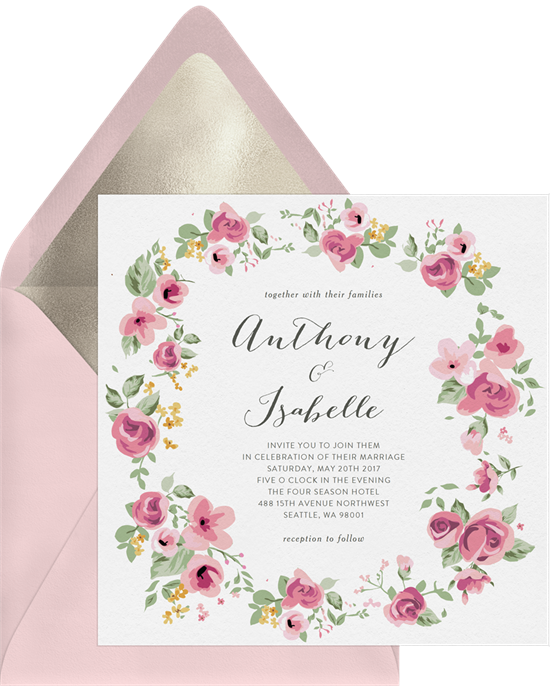
It can be very fun to praise your baby. You should be careful when praising your child. First, don't use negative words or compare your baby. Instead, use words of encouragement or descriptive language. Your praise should be matched by your facial expression. This will ensure that you communicate your message clearly.
Avoiding comparisons
Avoiding comparisons when praising babies is an important skill to develop in your child. It can be tempting to praise your child and compare him to other children. However, it can lead to an unneeded competitive atmosphere. It is also not motivating for younger children. It can also lead to "praise addiction", as the child can easily detect false praise.
It is important to praise your child with specificity in order to avoid making comparisons. This will encourage your child to become his or her own judge. You can also praise your child with the word "thanks."
Using descriptive words
Use descriptive words to praise your baby's good behavior. It will provide feedback to your child about the good things they did and help them to take responsibility for their actions. It will also help them develop a strong sense of self. It will help you to understand your child's actions by using descriptive words.

To praise your child for their good behavior in various situations, you can use descriptive words. By using specific words, you could describe your child’s drawings. This will help your child internalize the praise, and increase his likelihood of future positive behavior.
Avoiding negative terms
It is vital that you don't use negative terms to praise your child when they are struggling with behavior. This can cause a child to develop a negative self image. Instead, focus on praising positive behaviors. Use praise to encourage positive behavior change.
Praising is a powerful tool for parents to encourage children's development, but it should be used with care. Giving praise to a child can be a way to encourage and give attention to them so they are able to continue to engage with the task or activity. It is important to give praise with care and set realistic expectations. A speech-language pathologist may be able help you to praise a child without using any negative words.
Encouragement can be expressed through words
It is important that you praise your baby with genuine words of encouragement. It is possible to encourage your child with praise but not spontaneity. Use praise to reward good behavior. Be specific about the words you use. So your child will realize that their actions can be the source of success and fulfillment. This positive reinforcement is a key component of early childhood development and will have long-term effects.
Using words of encouragement to praise your baby is a great way to give positive messages about progress. Children respond well when positive messages are shared after facing a challenge. A fist bump or high-five is a good way to send the positive message.

Use words that address character
It is important to praise your baby for things that improve their character. If they are positive and have a positive disposition, praise them. Praise them for perseverance and being cooperative. These actions encourage them to be more confident in facing difficult situations and more optimistic. They can also be rewarded for their behavior. These could be in the form a surprise, or an additional privilege.
Children who receive praise are more likely to pick challenging tasks than children who do not receive it. Research has shown that praise helps preschoolers develop social skills. However, excessive praise can lead to negative consequences for your child's motivation and self-esteem. It may also fuel narcissism.
FAQ
Is there a positive example of parenting?
Positive parenting is teaching children how to behave. It involves setting high expectations for their behavior and expecting them to meet them. It includes loving them and helping them when they fail.
Positive parenting is teaching children how to make their own decisions, not rely on the easiest or fastest. This helps children develop into independent adults who know what they want and don't just do whatever others tell them.
Positive parenting also means having fun together and encouraging your children to enjoy the things in life that bring happiness.
Children develop trust when their parents show concern for them and treat them as people. They will be happier and healthier as a result.
How can I stop my child from bullying others?
Bullying is an issue that affects many young people today.
Some children bully their peers because they feel insecure. Others bully because they enjoy seeing someone else suffer.
Bullies often don't realize how much damage they can cause. They think they are doing the right thing.
It is therefore crucial to find ways to combat bullying in schools.
Here are some tips:
-
Teach students about bullying. Explain to students that bullying can be both positive and harmful.
-
Talk to your child and talk about bullying. Talk to your child about bullying.
-
Encourage empathy in your child. Encourage your child or teenager to imagine himself or herself in another person's shoes.
-
You must teach your child how to advocate for yourself and others.
-
Be consistent. Keep your word if you tell your child that he or she will not touch another student.
-
Your child should be watched at school.
-
Inform teachers if your child was bullied.
-
Do not use harsh words when speaking to your child. Instead, use kind and gentle language.
-
Set clear boundaries. Your child needs to know where he or she stands with you.
-
Stand up for your child and show your support.
-
All family members should work together. Parents and siblings may be able to help one another keep the peace.
-
Use rewards and punishments with care. Rewards are great for chores and good grades. Misbehavior can be punished with sanctions
Why do parents choose authoritarian parenting?
A sense of autonomy and self-determination is essential for children to be healthy adults. Children who don't have the ability to make decisions for themselves often feel helpless in life and are unable to manage it. This can lead to anxiety and depression.
Parents who are strict and controlling tend to make children feel weak and insecure. This can lead children to feel isolated and inadequate. It affects their ability or willingness to accept and deal with difficulties.
You can raise happy, confident and resilient kids by allowing them success and failure to happen without fear. Children are encouraged to take control of their own actions and behavior through authoritative parenting.
Children should always be given choices and encouraged to express opinions and ideas freely. By doing this, you help children build confidence and resilience.
Why is it so hard to parent a teenager?
Although it's not an easy task, you should try to get to know them. They need to be allowed to develop and learn on their terms. They are unique individuals with different opinions and ideas. And they are growing into adults. Please be patient and understanding.
They will make mistakes sometimes and behave badly. Remember that mistakes are part of human nature. You never know what your next move will be.
Keep your ears open and listen to them when they speak. Don't make assumptions about them. You can see the world from their perspective.
Remember to love them unconditionally. That way, they will become better people.
Statistics
- Most adults will become parents at some point in their lives (i.e., around 89.6% of the adult population worldwide; Ranjan, 2015). (positivepsychology.com)
- Dr. Phil says, “Children should be able to predict with absolute certainty, what will happen as a result of their behavior, 100% of the time.” (parenting.kars4kids.org)
External Links
How To
How can I discipline my child properly?
There are many ways of disciplining a child but remember that the goal is to get them to understand why they did something wrong so that they don't repeat it.
Here are some suggestions.
-
Explain to your child why it is that you think they did something incorrect.
-
Give them a time limit. You could say, "I'm going give you five minutes to clean your bedroom." You'll need to stay after school if you don't finish your room clean by the timer goes off.
-
Praise good behavior.
-
Be kind to others.
-
Make sure your child knows what consequences there will be if they misbehave.
-
Rewards are better than punishment. Rewards include praise, stickers, toys, etc.
-
Your child should be taught the rules of the game.
-
Be consistent.
-
Avoid screaming or shouting.
-
You must follow through with punishments.
-
Talk to your child calmly, but firm.
-
Maintain control over your emotions
-
Don't shout or scream.
-
Show love and affection.
-
Do not hit your child.
-
Take time to explain yourself.
-
Keep in mind, children are still very young!
-
Never stop following through with your promises
-
Listen to what your child is feeling.
-
Understand that children are not stupid.
-
Have patience.
-
Be kind to your child.
-
Stay calm.
-
Encourage your child to express his/her feelings.